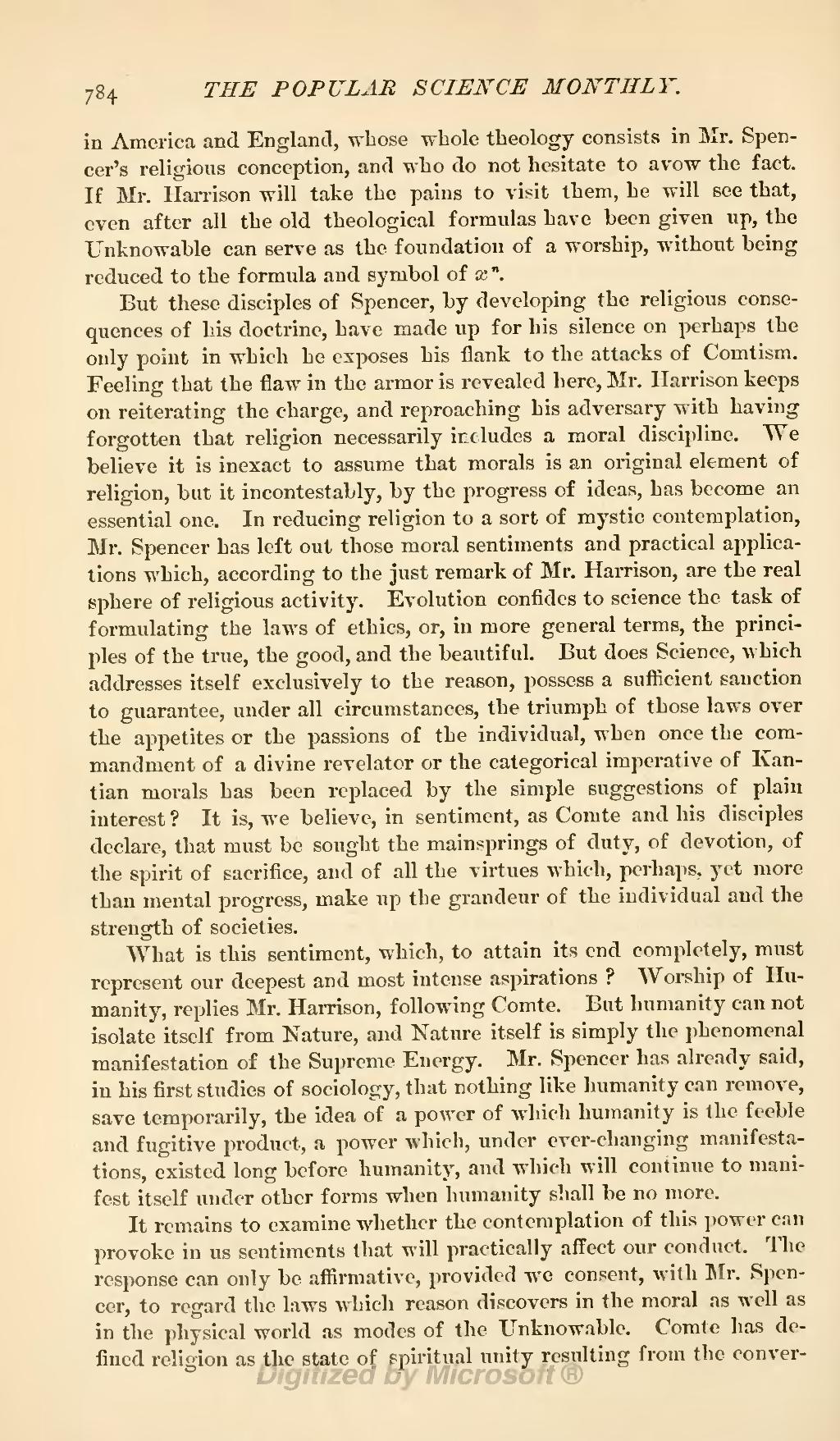in America and England, whose whole theology consists in Mr. Spencer's religious conception, and who do not hesitate to avow the fact. If Mr. Harrison will take the pains to visit them, he will see that, even after all the old theological formulas have been given up, the Unknowable can serve as the foundation of a worship, without being reduced to the formula and symbol of xn.
But these disciples of Spencer, by developing the religious consequences of his doctrine, have made up for his silence on perhaps the only point in which he exposes his flank to the attacks of Comtism. Feeling that the flaw in the armor is revealed here, Mr. Harrison keeps on reiterating the charge, and reproaching his adversary with having forgotten that religion necessarily includes a moral discipline. We believe it is inexact to assume that morals is an original element of religion, but it incontestably, by the progress of ideas, has become an essential one. In reducing religion to a sort of mystic contemplation, Mr. Spencer has left out those moral sentiments and practical applications which, according to the just remark of Mr. Harrison, are the real sphere of religious activity. Evolution confides to science the task of formulating the laws of ethics, or, in more general terms, the principles of the true, the good, and the beautiful. But does Science, which addresses itself exclusively to the reason, possess a sufficient sanction to guarantee, under all circumstances, the triumph of those laws over the appetites or the passions of the individual, when once the commandment of a divine revelator or the categorical imperative of Kantian morals has been replaced by the simple suggestions of plain interest? It is, we believe, in sentiment, as Comte and his disciples declare, that must be sought the mainsprings of duty, of devotion, of the spirit of sacrifice, and of all the virtues which, perhaps, yet more than mental progress, make up the grandeur of the individual and the strength of societies.
What is this sentiment, which, to attain its end completely, must represent our deepest and most intense aspirations? Worship of Humanity, replies Mr. Harrison, following Comte. But humanity can not isolate itself from Nature, and Nature itself is simply the phenomenal manifestation of the Supreme Energy. Mr. Spencer has already said, in his first studies of sociology, that nothing like humanity can remove, save temporarily, the idea of a power of which humanity is the feeble and fugitive product, a power which, under ever-changing manifestations, existed long before humanity, and which will continue to manifest itself under other forms when humanity shall be no more.
It remains to examine whether the contemplation of this power can provoke in us sentiments that will practically affect our conduct. The response can only be affirmative, provided we consent, with Mr. Spencer, to regard the laws which reason discovers in the moral as well as in the physical world as modes of the Unknowable. Comte has defined religion as the state of spiritual unity resulting from the conver-
